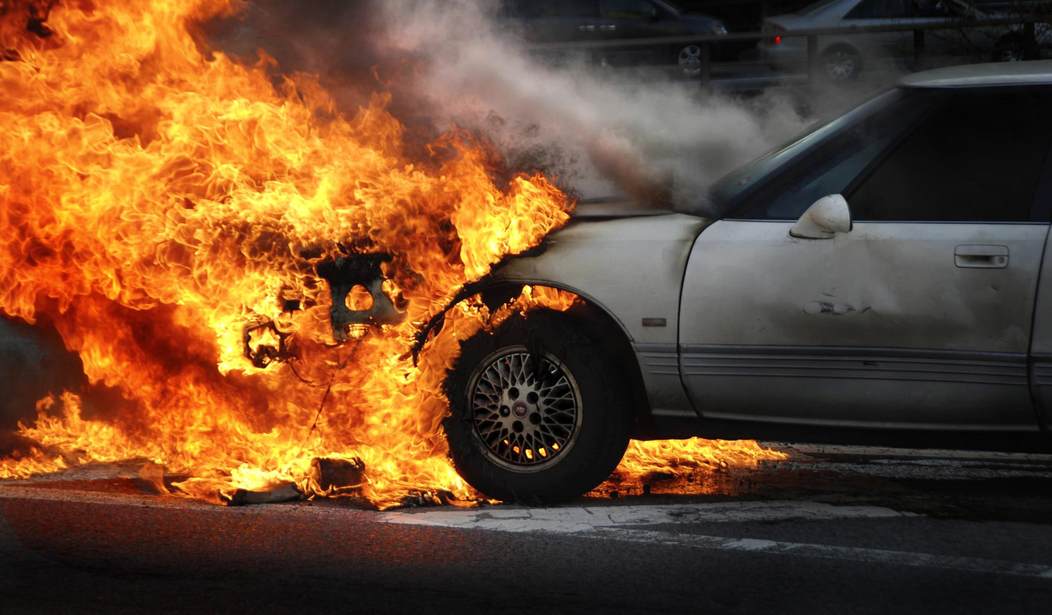Late last week, before and after President Donald Trump marched through Paris with French President Emmanuel Macron to celebrate Bastille Day on Friday, nearly 900 cars were burned across Paris suburbs.
A total of 897 cars were put to the torch, and 368 people were held in police custody for the crimes on the evenings of July 13 and 14, the French Interior Ministry reported, according to French news channel BFM TV.
Torching vehicles has become a Bastille Day tradition in France, with 855 cars burned in 2016 and 577 people arrested last year. In 2015, 951 cars were burned.
“In the course of several episodes of urban violence, our security forces have been subjected to intolerable attacks, the perpetrators of which will have to be answered in court, just like the perpetrators of vehicle fires, of course always too many,” Pierre-Henry Brandet, the Interior Ministry spokesman, said in a statement.
Thirteen officials and soldiers were wounded in the attacks, Brandet added. According to the ministry’s count, 631 vehicles were set on fire and 266 were hit by spreading flames.
Pamela Geller immediately tied the violence to “Muslim immigrants,” but a Swiss American suggested such a view oversimplified the issue.
“These people are told they are French, they are French on the passport, but French society doesn’t view them as French,” the source explained. “It’s a conflict between the French state doctrine which says that French identity is based on common values of the republic and regular folks who say that French culture is linked to heritage.”
The areas of violence did indeed have higher migrant populations, but these are mostly second- and even third-generation immigrants who have not yet assimilated into French culture, the source noted. The underlying cause might be more cultural than religious.
It is possible the influx of immigrants from the Middle East in the wake of the Syrian Civil War may have exacerbated these tensions, but they predate that struggle and are independent of it. France has agreed to accept 30,000 refugees from Syria.
Similar attacks occurred on New Year’s Eve. This year, nearly 1,000 vehicles were burned, and the Interior Ministry reportedly planned on publishing a lower number, arguing that the violence was “contained.” In 2014, the department claimed victory in that “only” 1,067 cars had been burned, a 10 percent decrease from 2013.
According to Britain’s The Telegraph, “The custom of setting vehicles alight on New Year’s Eve is set to have kicked off around Strasbourg, eastern France in the 1990s, in the city’s deprived, high-immigrant districts.”
The car burnings may not have been a response to the American president, but to the celebration of Bastille Day — a holiday focused on the French Revolution. This revolution promised equality (along with liberty and fraternity), and many immigrants — even French citizens from long-term colonies like Algeria — feel deprived of those promises.
But the influence of the migrant influx must not be overlooked. As Middle Easterners flocked to European cities, an expansion in terror attacks and violence has followed. In some sickening cases, Western multiculturalism has succumbed to barbarism, with a German judge ruling that a Turkish man’s forced violent sex is “culturally” not rape.
The sick and violent tradition of car burnings may have predated the current crisis, but these events merely underscore how the recent migrant influx — and Europe’s inability to assimilate immigrants — has rendered Europe increasingly unstable.









Join the conversation as a VIP Member